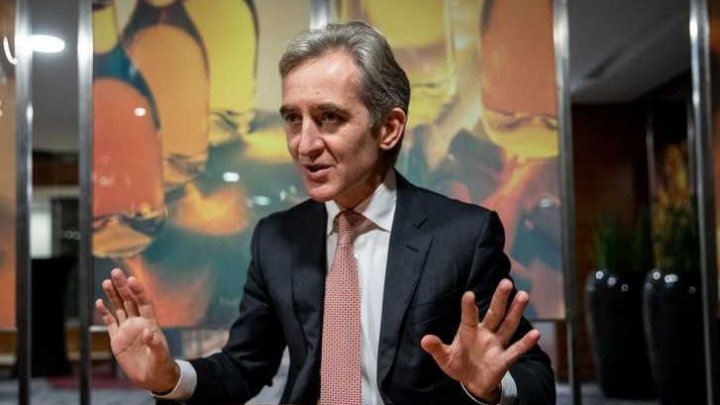Deputy Prime Minister Iurie Leanca: Hungary supports Moldova's efforts of EU integration
Deputy Prime Minister for European Integration Iurie Leanca attended the debates organized by the Center for Euro-Atlantic Integration and Democracy in Budapest on the attractiveness of the European Union to the neighboring countries on Wednesday, December 5, 2018.
Together with former Serbian Foreign Minister Vuk Jeremic and Foreign Affairs Committee Chairman of the Hungarian Parliament Zsolt Németh, the Moldovan Deputy Prime Minister discussed the level of confidence of the population in the EU, the Russian presence in the region and the prospects for adherence.
According to the Moldovan official, the population confidence ratio is in favor of the EU, but it is not enough, because the difference between the pro-European supporters and the of the "Eurasian Integration" supporters is 10%.
"In order to strengthen the process of increasing the confidence of those who see the European Union as the only development priority of the country, the EU should provide a clear perspective to the Republic of Moldova. Without the status of candidate country, it will be harder to maintain the social pace of the reforms", said Iurie Leanca.
For his part, Zsolt Németh reconfirmed Hungary's resolute position to support Moldova's efforts to integrate the European Union.
"EU enlargement must not stop because it has brought a lot of economic and social benefits to the states that joined in 2005 and 2007. The Republic of Moldova should not be deprived of this opportunity because the states to be recruited in the new enlargement will be pushed towards development, gaining access to EU structural and cohesion funds, "said the chair of the Foreign Affairs Committee of the Hungarian Parliament.
In the context of intensifying the Russian presence in the region, Iurie Leanca spoke about the dangers facing the Republic of Moldova, including the Russian military presence in the Transnistrian region, economic blackmail and embargoes, ongoing informational propaganda.
"Another major challenge is the recent understanding between Moldovan President Igor Dodon and Moscow that 180,000 people working in Russia return to Moldova during the electoral period in return for their amnesty", said Deputy Prime Minister Iurie Leanca.
 foto: gov.md
foto: gov.md



